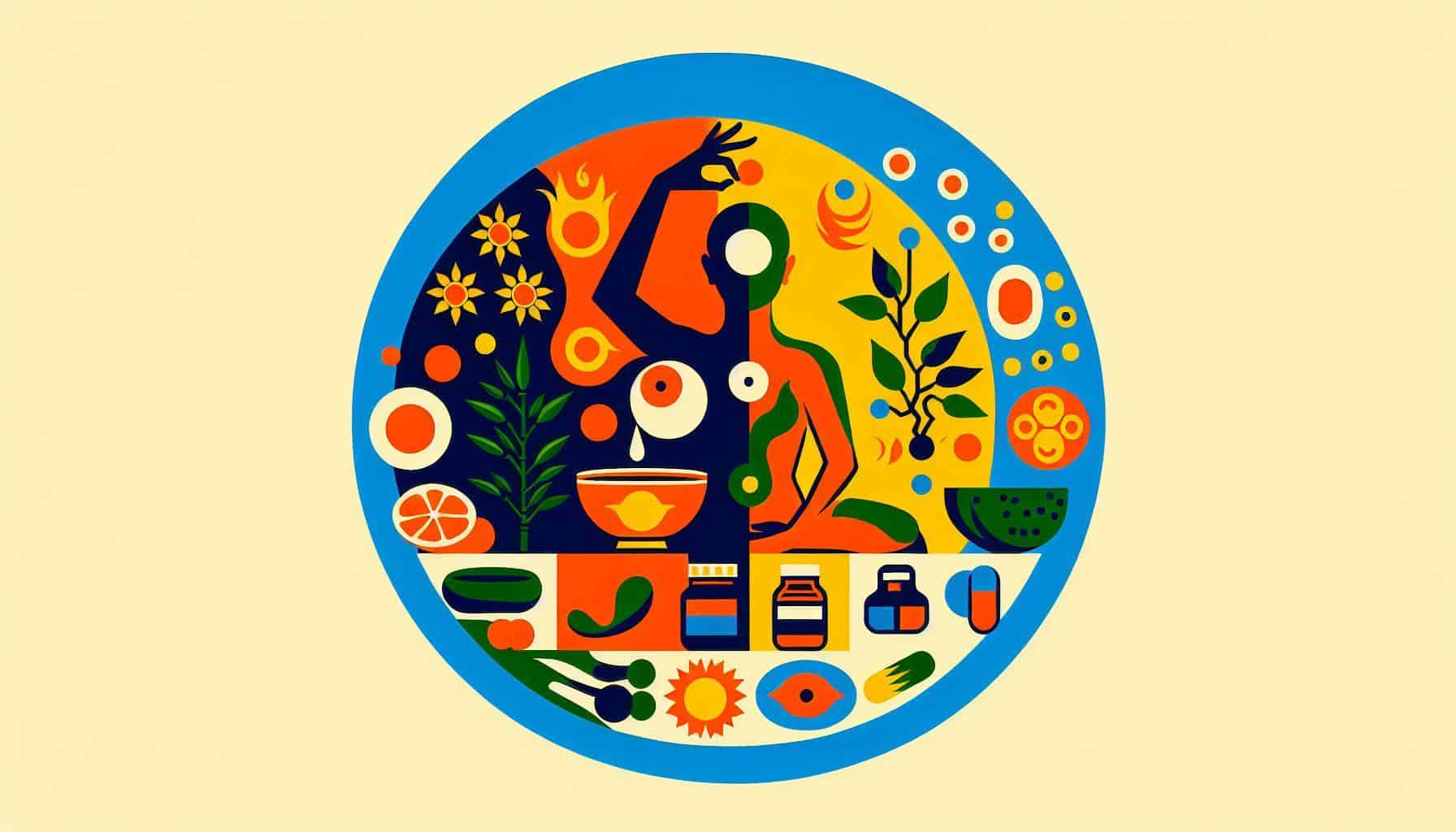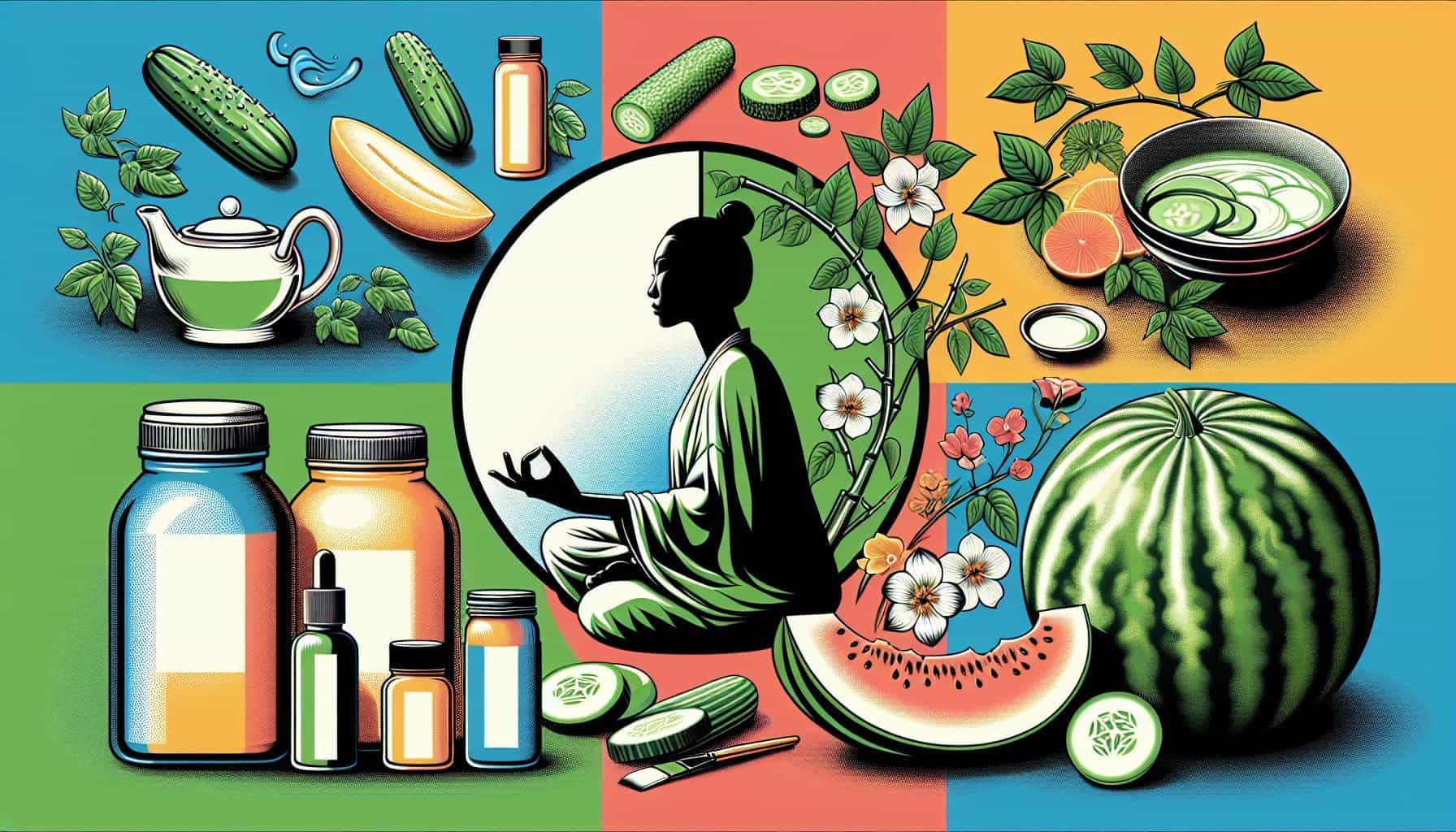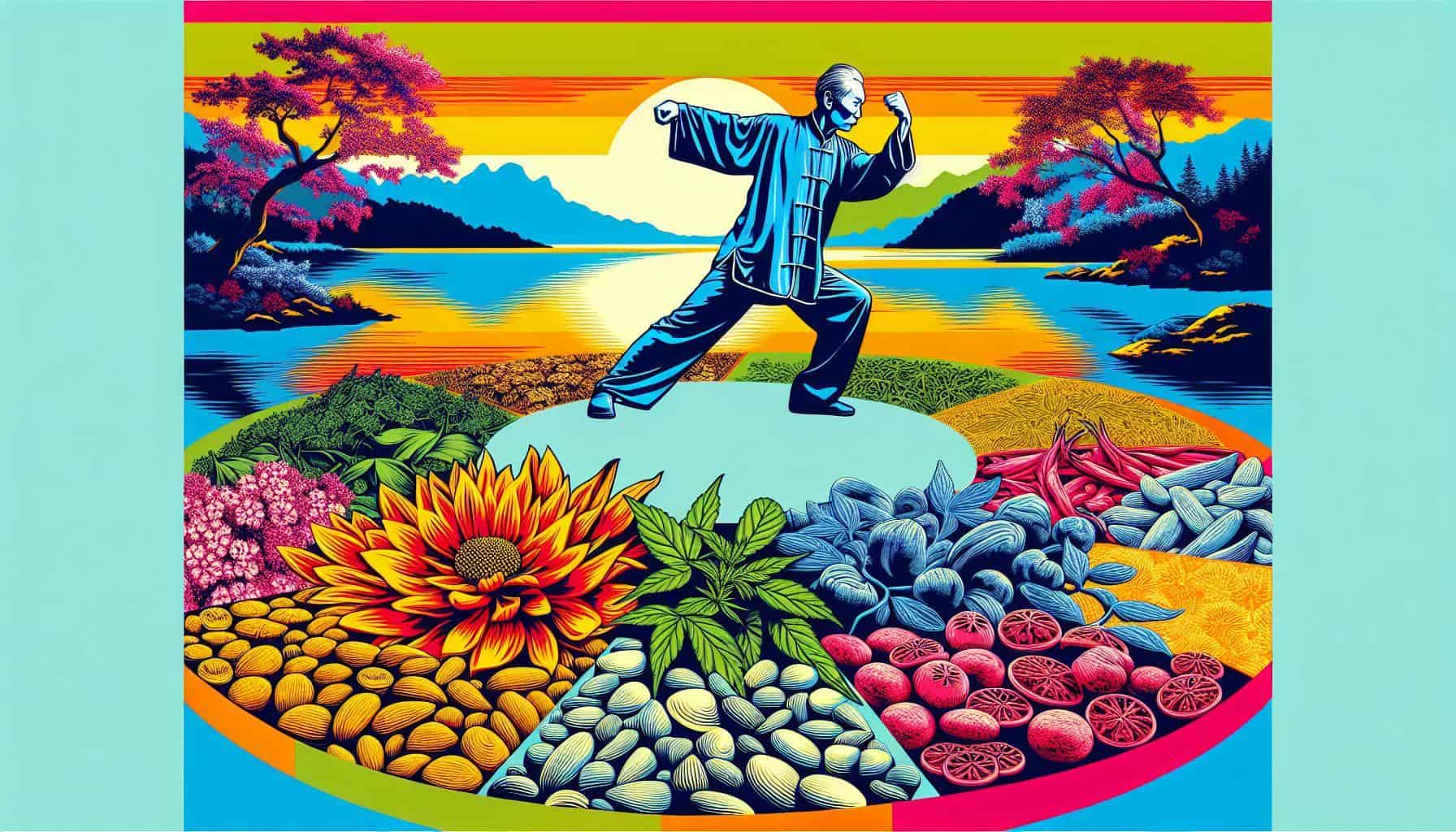Balance Your Qi: Traditional Chinese Medicine Acne Solutions
Navigating the world of acne treatments can be overwhelming, but if you’ve tried conventional methods without success, it might be time to explore Traditional Chinese Medicine (TCM). TCM offers a unique perspective, focusing on the root causes of acne rather than just the symptoms.
TCM views acne as an imbalance in the body’s Qi (energy) and dampness, and its herbal remedies aim to restore harmony. If you’re seeking a natural approach, delving into the principles of Chinese medicine could unveil a tailored solution for your persistent breakouts.
Understanding Acne through Traditional Chinese Medicine
When exploring traditional Chinese medicine acne solutions, it’s essential to delve into how TCM interprets the appearance of acne. Unlike Western medicine, which often treats the symptoms directly, TCM seeks to understand the deeper imbalances within your body that might manifest as acne.
In the realm of TCM, the belief is that acne stems from disharmonies related to Qi, blood, and dampness within your system. The principles of TCM assert that acne is not just a skin issue; it’s a reflection of your body’s internal struggles. Your TCM practitioner might suggest that Qi stagnation or blood stasis is at play, causing the skin to become inflamed.
- Qi Stagnation: When Qi, or life force, doesn’t flow freely, it can result in accumulation of heat and toxins, akin to a traffic jam in your energy pathways.
- Blood Stasis: Interrupted or sluggish blood circulation can lead to heat and impurities becoming trapped beneath your skin, resulting in acne.
A fundamental concept in TCM is holistic healing; your practitioner will likely emphasize the balance between your internal functions and external factors. They’ll consider environmental influences, your diet, and even emotional well-being as contributors to your skin health.
The diagnostic approach in TCM is unique, involving techniques such as tongue and pulse analysis. Although not grounded in modern scientific validation, these methods are integral to crafting a TCM treatment plan tailored specifically to your needs. It’s about personalization and treating you, not just your symptoms.
Remember, the efficacy of traditional Chinese medicine acne solutions varies from individual to individual. As with any treatment, patience and consistency are key, as TCM focuses on long-term balance and restoration rather than quick fixes. Your journey to clear skin through TCM might be gradual, but for many, the personalized approach offers a compelling pathway to not only improve their acne but also their overall health.
The Concept of Qi and Dampness in TCM
 Understanding the role of Qi and dampness is crucial as you explore traditional Chinese medicine acne solutions. In TCM, Qi is the vital life force circulating through the body, integral for maintaining wellness and balance. If Qi becomes stagnant or imbalanced, it can lead to various health issues, including acne. Acne, in the TCM perspective, is often thought to arise when there is an excess of heat in the body—a condition termed as “damp-heat.”
Understanding the role of Qi and dampness is crucial as you explore traditional Chinese medicine acne solutions. In TCM, Qi is the vital life force circulating through the body, integral for maintaining wellness and balance. If Qi becomes stagnant or imbalanced, it can lead to various health issues, including acne. Acne, in the TCM perspective, is often thought to arise when there is an excess of heat in the body—a condition termed as “damp-heat.”
Damp-heat is a concept that may be unfamiliar if you’re accustomed to Western medical terminology. It’s rooted in TCM’s unique understanding of bodily functions. This condition is characterized by symptoms like skin inflammation and pimples which reflect both the “heat” as inflammation and the “damp” as the body’s struggle to eliminate waste, including excessive mucus or pus.
When tackling traditional Chinese medicine acne solutions, practitioners aim to:
- Cool the body’s excess heat
- Transform and expel the unhealthy dampness
- Enhance digestive functions to preempt dampness
- Reduce inflammation
- Improve blood flow
TCM advises a holistic approach, including dietary modifications, to manage damp-heat conditions effectively. Here are some actionable lifestyle tips that support this strategy:
- Stay hydrated to help your body maintain its natural balance
- Drink warm lemon water in the mornings to assist in clearing dampness
- Incorporate foods such as apples, cucumbers, and pears—known for their cooling properties
- It’s advised to avoid foods and drinks like dairy, alcohol, and anything excessively spicy, salty, or sugary
Remember that the Qi in your body is closely connected to the skin which acts as a mirror reflecting the state of your internal organs. By nurturing your digestive system and keeping Qi flowing without obstruction, you’re well on your way to mitigating acne issues and promoting overall health according to the principles of TCM.
Common Causes of Acne in TCM
When exploring traditional Chinese medicine acne solutions, it’s critical to understand acne from a TCM perspective. Based on TCM principles, acne isn’t just a superficial skin issue; it’s a manifestation of an internal imbalance. Heat toxins and dampness are among the primary culprits within this ancient medical system that connect directly to acne flare-ups. Here’s how these elements disrupt your body’s harmony and contribute to skin concerns.
Heat in TCM is akin to inflammation in Western medicine. When your body accumulates excessive heat, it can manifest as red, inflamed, and painful acne. This kind of heat often stems from emotional stress, hormonal changes, or a diet rich in spicy, fried, or greasy foods. These triggers spark internal heat that eventually surfaces on your skin.
On the other hand, dampness relates to bodily functions that involve fluids. When there’s an overabundance of dampness, it hampers your body’s ability to process fluids effectively. The result is an environment ripe for bacterial growth and blockages, leading to the swollen, pus-filled acne lesions you’re intent on banishing.
In TCM, the synergy between internal organ systems is fundamental to health. The liver and digestive system are particularly important in regulating hormones and bodily toxins; an imbalance here can exacerbate your acne issues. External factors like environment and diet are also emphasized, thus calling for a holistic approach to treatment.
By integrating traditional Chinese medicine acne solutions, such as modifying your diet to reduce heat-producing foods or employing herbal remedies to expel dampness, you can start correcting these imbalances. It’s about nurturing your body holistically to ensure that Qi—the vital life force—flows freely without obstruction, promoting clearer skin and an enhanced sense of overall well-being.
TCM Herbal Solutions for Acne
Traditional Chinese Medicine (TCM) offers a unique perspective on acne, viewing it as an imbalance of the body’s energies. When you explore TCM herbal solutions for acne, you’re delving into centuries-old practices. These treatments aim to restore harmony and balance your Qi, which, according to TCM, can lead to healthier skin.
TCM categorizes herbs based on their properties and effects on the body’s heat, dampness, and energy flow. For acne management, TCM practitioners often recommend herbs that cool the heat. Some common herbs you might encounter include:
- Huang Lian: Known for its heat-clearing properties, it’s often used to calm the skin.
- Ji Xue Cao: Also called Gotu Kola, this herb is believed to help with skin repair and clarity.
It’s essential to understand that these herbs work to balance internal conditions rather than targeting acne directly. You won’t find a one-size-fits-all TCM remedy for acne because each treatment plan is tailored to the individual’s imbalances and symptoms. This personalized approach requires patience and time, as results can vary widely.
The effectiveness of TCM herbal solutions largely depends on the type of acne you’re dealing with. While these herbs might be beneficial for mild to moderate acne, they often fall short in more severe cases, such as cystic acne. Moreover, TCM might not directly address other identified root causes of acne, like hormonal imbalances and clogged pores.
There’s an important note of caution: not all herbal solutions are created equal. The quality and purity of herbs are paramount, as contaminants can compromise their safety and effectiveness. Always ensure that you’re obtaining herbs from reputable sources.
Adopting TCM herbal solutions for your acne involves not just applying treatments, but also modifying your diet and lifestyle to reduce triggers that may be contributing to the imbalance. Reducing heat-producing foods and integrating stress-reducing activities are encouraged to support the holistic healing process.
Lifestyle Changes to Support Acne Treatment in TCM
 When you’re exploring traditional Chinese medicine acne solutions, remember that TCM emphasizes the significance of a holistic lifestyle. Embracing certain lifestyle changes can bolster the efficacy of the natural remedies you’re incorporating.
When you’re exploring traditional Chinese medicine acne solutions, remember that TCM emphasizes the significance of a holistic lifestyle. Embracing certain lifestyle changes can bolster the efficacy of the natural remedies you’re incorporating.
In the realm of TCM, diet plays a critical role in maintaining balanced energies and overall health. Foods that are rich in spicy and oily content are believed to contribute to the ‘heat’ within the body. To counteract this, TCM suggests dietary modifications that include:
- Consuming cooling foods such as cucumbers, melons, and leafy greens
- Reducing intake of hot and greasy foods to diminish internal heat
- Drinking herbal teas that possess properties to clear toxins and cool the body
Alongside diet, stress management is another pillar in the TCM approach to acne treatment. High stress levels can disrupt your body’s balance, affecting your skin’s health. You’re encouraged to engage in stress-reducing activities such as:
- Tai Chi or yoga to harmonize your Qi
- Meditation and deep breathing exercises
- Adequate sleep that supports the body’s natural healing processes
Personal hygiene is also pivotal. TCM promotes using gentle cleansing techniques that align with your skin’s natural pH levels while avoiding harsh exfoliants that could exacerbate the imbalance in your skin.
Finally, incorporating regular physical activity into your routine can improve circulation and help detoxify your system as it aligns with TCM beliefs of promoting energy flow and balance.
By weaving these changes into your life, you’re supporting the traditional Chinese medicine acne solutions tailored to your unique condition. Remember that maintaining these lifestyle shifts is key to long-term benefits, complementing the personalized treatment plan devised by your TCM practitioner.
Conclusion
Frequently Asked Questions
How does Traditional Chinese Medicine treat acne?
Traditional Chinese Medicine (TCM) treats acne by addressing the body’s imbalances. By using herbal remedies, TCM aims to cool overheated energies, promote blood circulation, and restore Qi harmony to alleviate acne symptoms.
How did ancient people treat acne?
Ancient practices for treating acne included using natural ingredients. Egyptians used honey and sulfur, while an ancient Greek physician recommended wiping spots with a towel under a falling star, symbolically proposing that the acne would vanish as stars fall.
What is Chinese medicine for cystic acne?
Chinese medicine utilizes herbs like Chinese Angelica Root for cystic acne. This herb is known for its anti-acne properties, which include antioxidant content and the ability to improve blood and Qi circulation.
Why are Asians prone to cystic acne?
Asians may be more prone to cystic acne due to genetic factors and the warm climates in Asian regions, which can lead to increased oil production in the skin, making it susceptible to acne outbreaks.
Can Chinese herbal medicine cure acne?
While there is no absolute “cure” for acne, Chinese herbal medicine can effectively manage and reduce acne symptoms. Topical treatments containing specific herbs can help diminish inflammation, promote healing, and dry out pus.

